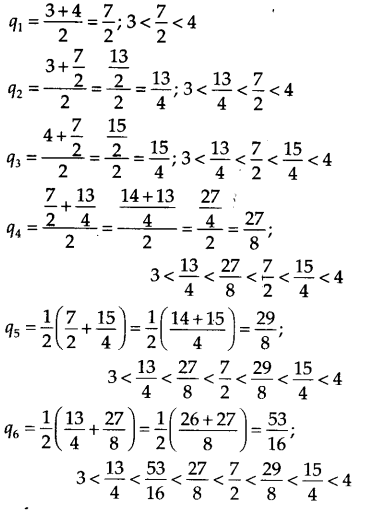Past
perfect tense:
Affirmative
Form:
Formula:
Subject+had+Past
Participle (Verb)+Rest of the Sentence
Breakdown:
Subject:
The person or thing performing the action.
Had:
The past tense of the verb "to have."
Past
Participle:
The third form of the main verb (often ending in -ed for regular
verbs, or irregular forms).
Rest
of the Sentence:
Additional information about the action.
Examples:
She
(subject) had
finished
(had + finished) her
homework
(rest of the sentence) before
dinner.
They
(subject) had
traveled
(had + traveled) to
Europe
(rest of the sentence) before
COVID-19.
He
(subject) had
read
(had + read) the
book
(rest of the sentence) before
the movie started.
Fill-in-the-blank
sentences in the past perfect affirmative form with the verbs
provided in brackets:
1.
She ________ (finish) her homework before dinner.
2.
They ________ (arrive) at the airport before the flight departed.
3.
He ________ (study) for the exam all night.
4.
We ________ (clean) the house before the guests arrived.
5.
I ________ (eat) lunch by the time he called.
6.
She ________ (read) all the books on the shelf.
7.
They ________ (fix) the car before it broke down.
8.
He ________ (complete) the project before the deadline.
9.
We ________ (watch) the movie before it started raining.
10.
The teacher ________ (give) the students the test after they had
studied.
Answers:
1.
She had finished her homework before dinner.
2.
They had arrived at the airport before the
flight departed.
3.
He had studied for the exam all night.
4.
We had cleaned the house before the guests
arrived.
5.
I had eaten lunch by the time he called.
6.
She had read all the books on the shelf.
7.
They had fixed the car before it broke down.
8.
He had completed the project before the
deadline.
9.
We had watched the movie before it started
raining.
10.
The teacher had given the students the test
after they had studied.
Negative
Form:
To
form the negative past perfect, add "not" after "had."
Formula:
Subject+had
not +Past Participle (Verb)+Rest of the Sentence
OR
Subject+hadn’t+Past
Participle (Verb)+Rest of the Sentence
Examples:
She
(subject) had
not finished
(hadn't + finished) her
homework
(rest of the sentence) before
dinner.
They
(subject) hadn't
traveled
(hadn't + traveled) to
Europe
(rest of the sentence) before
COVID-19.
He
(subject) had
not read
(hadn't + read) the
book
(rest of the sentence) before
the movie started.
Fill-in-the-blank
sentences in the past perfect negative form, with the verbs provided
in brackets:
1.
She ________ (finish) her work before the meeting.
2.
They ________ (leave) the house when it started raining.
3.
He ________ (eat) lunch before he left.
4.
We ________ (clean) the kitchen before guests arrived.
5.
I ________ (read) the book before I watched the movie.
6.
She ________ (buy) groceries before she went home.
7.
They ________ (fix) the car before it broke down.
8.
You ________ (study) for the exam before the teacher announced it.
9.
He ________ (call) his friend before he went to bed.
10.
We ________ (finish) dinner before the guests arrived.
Answers:
1.
She had not finished her work before the
meeting.
2.
They had not left the house when it started
raining.
3.
He had not eaten lunch before he left.
4.
We had not cleaned the kitchen before guests
arrived.
5.
I had not read the book before I watched the
movie.
6.
She had not bought groceries before she went
home.
7.
They had not fixed the car before it broke down.
8.
You had not studied for the exam before the
teacher announced it.
9.
He had not called his friend before he went to
bed.
10.
We had not finished dinner before the guests
arrived.
Interrogative
Form:
To
form the interrogative past perfect, place "had" before the
subject.
Formula:
Had+Subject+Past
Participle (Verb)+Rest of the Sentence?
Examples:
Had
(had) she
(subject) finished
(finished) her
homework
(rest of the sentence) before
dinner?
Had
(had) they
(subject) traveled
(traveled) to
Europe
(rest of the sentence) before
COVID-19?
Had
(had) he
(subject) read
(read) the
book
(rest of the sentence) before
the movie started?
Fill-in-the-blank
sentences in the past perfect interrogative form, with the answers
provided after all questions:
1.
________ she ________ (finish) her work before you arrived?
2.
________ they ________ (leave) when the movie started?
3.
________ he ________ (eat) before he went to the gym?
4.
________ you ________ (study) for the test before the teacher
announced it?
5.
________ we ________ (meet) before the conference began?
6.
________ she ________ (clean) the house before guests arrived?
7.
________ he ________ (fix) the car before it broke down?
8.
________ they ________ (pack) their bags before the trip?
9.
________ you ________ (read) the book before the movie came out?
10.
________ he ________ (complete) the project before the deadline?
Answers:
1.
Had she finished her work
before you arrived?
2.
Had they left when the
movie started?
3.
Had he eaten before he went
to the gym?
4.
Had you studied for the
test before the teacher announced it?
5.
Had we met before the
conference began?
6.
Had she cleaned the house
before guests arrived?
7.
Had he fixed the car before
it broke down?
8.
Had they packed their bags
before the trip?
9.
Had you read the book
before the movie came out?
10.
Had he completed the
project before the deadline?


